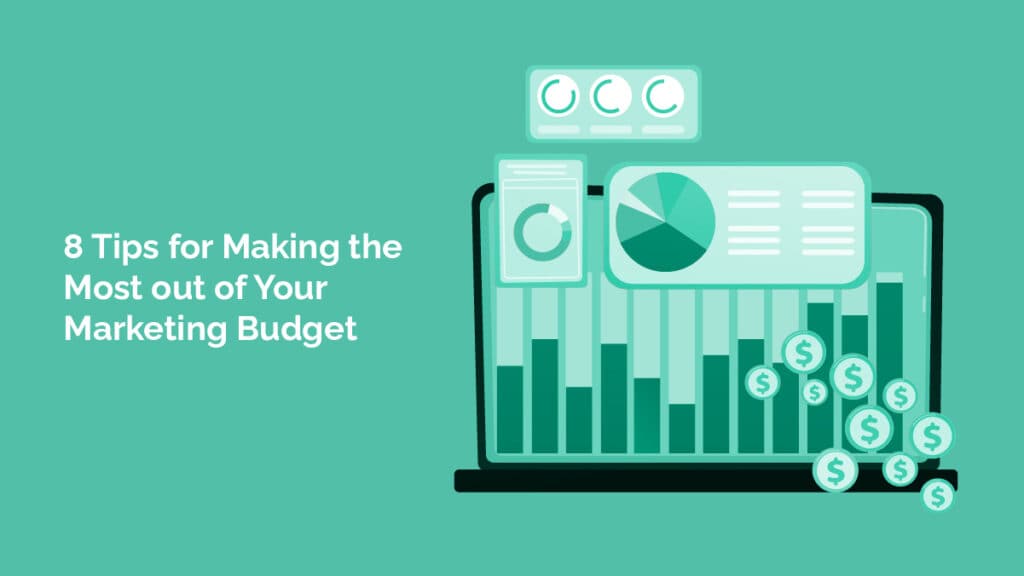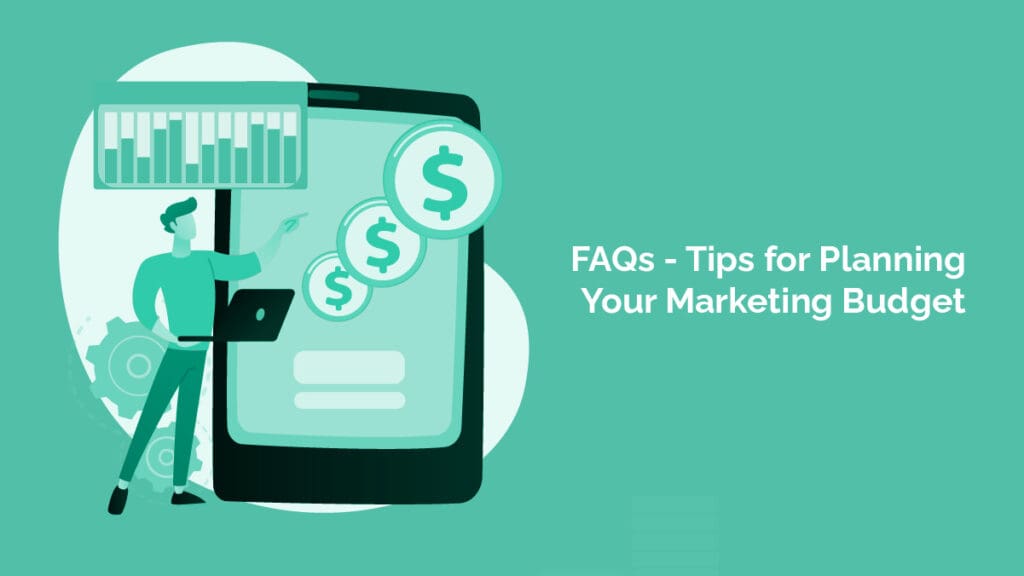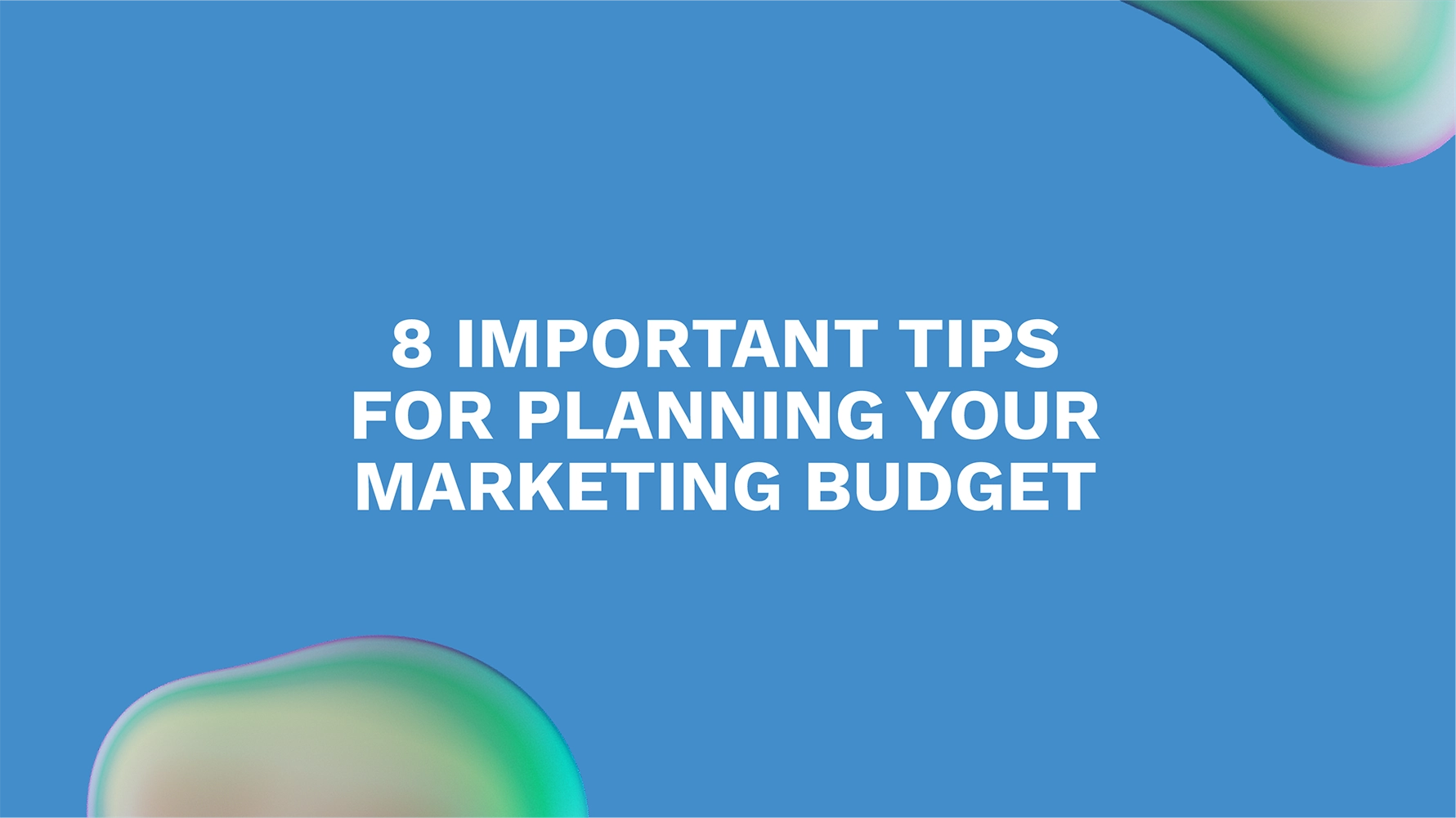Discover 8 vital tips for planning your marketing budget effectively. Set clear goals, prioritize investments and maximize the impact of your marketing budget.
8 Important Tips for Planning Your Marketing Budget
Planning your marketing budget is crucial for the success of your business. Without allocating funds strategically, you risk inefficient spending and missed opportunities. Follow these 8 important tips to navigate the complexities of creating an effective marketing budget.
Why You Need a Marketing Budget
In today’s fast-paced, highly competitive business environment, it’s absolutely essential to have your marketing budget clearly outlined. It’s a critical step that can truly make or break the success of any organization. A marketing budget serves as a strategic roadmap, guiding your business’ growth and ensuring the effective utilization of resources. It allows you to allocate funds to various marketing initiatives and channels, enabling you to reach your target audience, generate leads and ultimately drive sales.
Without a budget, your marketing efforts may lack direction and consistency, which can result in wasted resources and missed opportunities. When you establish a marketing budget, you can make informed decisions, prioritize activities and measure the return on investment (ROI) of your marketing campaigns.
Small Business Marketing Budget
In the vibrant landscape of small businesses, creating a well-structured marketing budget is like unlocking the door to success. When you’re working with a tight budget, you’ve got to be smart about where your money goes. Make sure every penny you spend is helping your business grow and bringing in profits. It’s crucial to identify the most effective marketing channels and strategies to reach your target audience.
Focus on cost-effective initiatives, such as social media marketing, content creation and targeted online advertising. These initiatives can deliver substantial results without draining your budget. By dedicating a budget to marketing, you strategically invest in efforts that align with your business objectives, granting you a competitive edge within your industry. The careful planning and execution of a small business marketing budget serve as a powerful tool for sustainable growth and success.

1# – Identify Your Marketing Goals
To make the most of your marketing budget, start by identifying clear and specific goals. Define what you want to achieve, whether it’s increasing brand awareness, driving website traffic, generating leads or boosting your sales. By understanding your objectives, you can align your budget with targeted strategies that will effectively support your goals. Whether it’s through market research, competitor analysis or customer feedback, gaining insights into your target audience and their needs will further refine your marketing goals.
2# – Understand Your Target Audience
Gaining a deep understanding of your target audience is vital for maximizing your marketing budget. Delve into their demographics, preferences, behaviors and pain points. Engage in market research, analyze customer data and actively interact through surveys or social media. By grasping these valuable insights, you can tailor your strategies to resonate with your audience. When you know your audience, you can craft compelling messages and deliver experiences that create a lasting connection, ensuring that every marketing dollar you spend makes a significant impact.
3# – Understand Your Market and Competition
Gaining a comprehensive understanding of your market and competition is essential for maximizing your marketing budget. Dive into thorough market research to identify industry trends, customer demands and emerging opportunities. Analyze your competitors’ strategies, strengths and weaknesses to gain valuable insights that inform your own marketing approach. Stay vigilant, adapt to changes and leverage your knowledge to make informed decisions that maximize the impact of your marketing efforts, enabling you to outshine your competition.
4# – Hire a Marketing Agency Where Needed
To maximize the effectiveness of your marketing budget, consider partnering with a reputable marketing agency. By enlisting the expertise of professionals who understand the ever-changing landscape, like FYA, you can gain a fresh perspective, industry knowledge and specialized skills. A marketing agency can help you identify opportunities, develop tailored strategies and execute impactful campaigns across multiple channels. Whether it’s social media management, content creation, search engine optimization (SEO) or paid advertising, their resources and insights can supplement your in-house efforts.
5# – Get an In-House Marketing Team
Consider building an in-house marketing team to maximize the efficiency of your marketing budget. Having dedicated professionals within your organization allows for streamlined communication, quick decision-making and greater control over your marketing initiatives. With an in-house team, you can align strategies closely with your business goals, adapt swiftly to market changes and maintain consistent branding and messaging. This fosters effective campaign execution, resource optimization and long-term marketing success, ensuring a strong return on your budget investment.
6# – Invest in Content Repurposing and Updating
Maximize the value of your marketing budget by investing in content repurposing and updating. Instead of constantly creating new content from scratch, repurpose existing content across different formats and platforms. Transform blog posts into engaging videos, infographics or social media snippets. Update and refresh outdated content to keep it relevant and valuable to your audience. This approach allows you to maintain a consistent brand voice while effectively utilizing your budget to generate ongoing engagement and drive results.
#7 – De-Prioritize Underperforming Channels
To optimize your marketing budget, it’s essential to assess the performance of various marketing channels and de-prioritize those that yield poor results. Regularly analyze key performance indicators (KPIs) such as conversion rates, engagement metrics and ROI for each channel. Identify underperforming channels and reallocate resources to higher-performing ones. This strategic approach ensures that your budget is focused on channels that generate the most impact and deliver the best return on investment.
8# – Constantly Re-Evaluate Your Marketing Strategy
Maintaining a proactive approach, constantly re-evaluating your marketing strategy is essential to maximizing your budget. Monitor campaign performance, track metrics and stay updated on industry trends. Regularly assess tactics, adapt to evolving market dynamics, and cater to customer preferences. Embrace agility, seizing opportunities and addressing challenges.
Common Marketing Budget Mistakes
While planning and managing a marketing budget, it’s important to be aware of common mistakes that can hinder its effectiveness. Avoiding these pitfalls can save you valuable resources and ensure optimal results.
Some common marketing budget mistakes include:
- Inadequate research and planning
- Allocating disproportionate funds to a single channel
- Overlooking the importance of analytics and measurement
- Failing to adapt and adjust strategies
- Not setting realistic goals and expectations
By being mindful of these pitfalls and learning from them, you can steer clear of costly mistakes, make informed decisions, and maximize the impact of your marketing budget.
Final Thoughts
Effective planning and management of your marketing budget are vital for driving success in your marketing initiatives. By implementing the tips discussed, such as identifying goals, understanding your target audience, analyzing the market and competition, utilizing marketing agencies where needed and more, you can optimize your budget allocation and achieve exceptional results.
Remember that navigating the marketing landscape can be complex, but you don’t have to do it alone. Find Your Audience is your bolt-on marketing partner that delivers expertise and horsepower to support, enhance or drive all of your marketing functions. With their guidance, you can make informed decisions, unlock new opportunities and maximize the impact of your marketing budget. So embrace these insights, refine your strategies and leverage the power of a trusted marketing partner to propel your business towards greater heights of success.

Here are a few FAQs to provide you with further clarity and guidance:
How Much Should I Allocate to My Marketing Budget?
Crafting an ideal marketing budget is like sculpting a masterpiece – it depends on the unique canvas of your business size, industry and growth goals. As a general rule of thumb, experts suggest allocating a percentage of your revenue, usually falling between the ranges of 5% to 15%. Remember that your budget should be tailored to your specific needs and the competitive landscape you navigate.
How Do I Prioritize Marketing Activities Within My Budget?
Prioritizing marketing activities requires aligning them with your overall business goals. It is essential to consider strategies that effectively reach and engage your target audience. To make informed decisions, analyze past performance and conduct thorough market research. Prioritize activities that offer the highest return on investment, ensuring your efforts are focused and optimized for success. By taking these steps, you can enhance the effectiveness and efficiency of your marketing initiatives.
Should I Invest More in Traditional Marketing or Digital Marketing?
The choice between traditional and digital marketing depends on factors such as your target audience, industry and marketing goals. In the digital age, digital marketing often offers cost-effective and targeted options. It is crucial to carefully evaluate your business’s specific needs. Consider selecting a mix of channels that can effectively reach your audience. Assess the advantages and disadvantages of each approach to create an informed strategy tailored to your unique circumstances. This will maximize the effectiveness of your marketing efforts and help you achieve your desired outcomes.
How Often Should I Review and Adjust My Marketing Budget?
Regularly reviewing and adjusting your marketing budget is essential to stay agile and adapt to changing market conditions. It’s recommended to conduct quarterly or biannual reviews. During these reviews, analyze the performance of your marketing activities. Reassess your goals and make necessary adjustments to optimize your budget allocation. This proactive approach ensures that your marketing efforts remain aligned with your objectives. It allows you to make informed decisions based on current market dynamics. By regularly reviewing and adjusting your marketing budget, you can effectively navigate the evolving landscape and maximize the impact of your marketing initiatives.
How Much Do Small Businesses Spend on Advertising and Marketing?
Determining the ideal advertising and marketing budget for small businesses is a common concern. There’s no universal answer, but small businesses typically allocate a percentage of their revenue to advertising and marketing. According to the Small Business Administration, businesses with less than $5 million in annual revenue should allocate 7-8% of their revenue to marketing. This percentage may vary based on factors like industry, growth goals and competition. Small businesses should evaluate their specific needs, consider market trends and analyze the potential ROI to determine the right budget for advertising and marketing. Striking the right balance allows small businesses to effectively reach their target audience, generate brand awareness and drive growth without overspending.
How Much Should You Calculate for a Marketing Budget?
To calculate the optimal marketing budget, it is essential to consider various factors and allocate resources wisely. Typically, businesses allocate a percentage of their projected revenue to marketing as a general guideline. The specific percentage varies based on industry, competition, growth goals and business lifecycle stage. Established businesses commonly allocate around 5-10% of projected revenue. Start-up companies or businesses aiming for aggressive growth may allocate a higher percentage, ranging from 10-20%. These percentages are not set in stone and should be customized according to individual circumstances.
